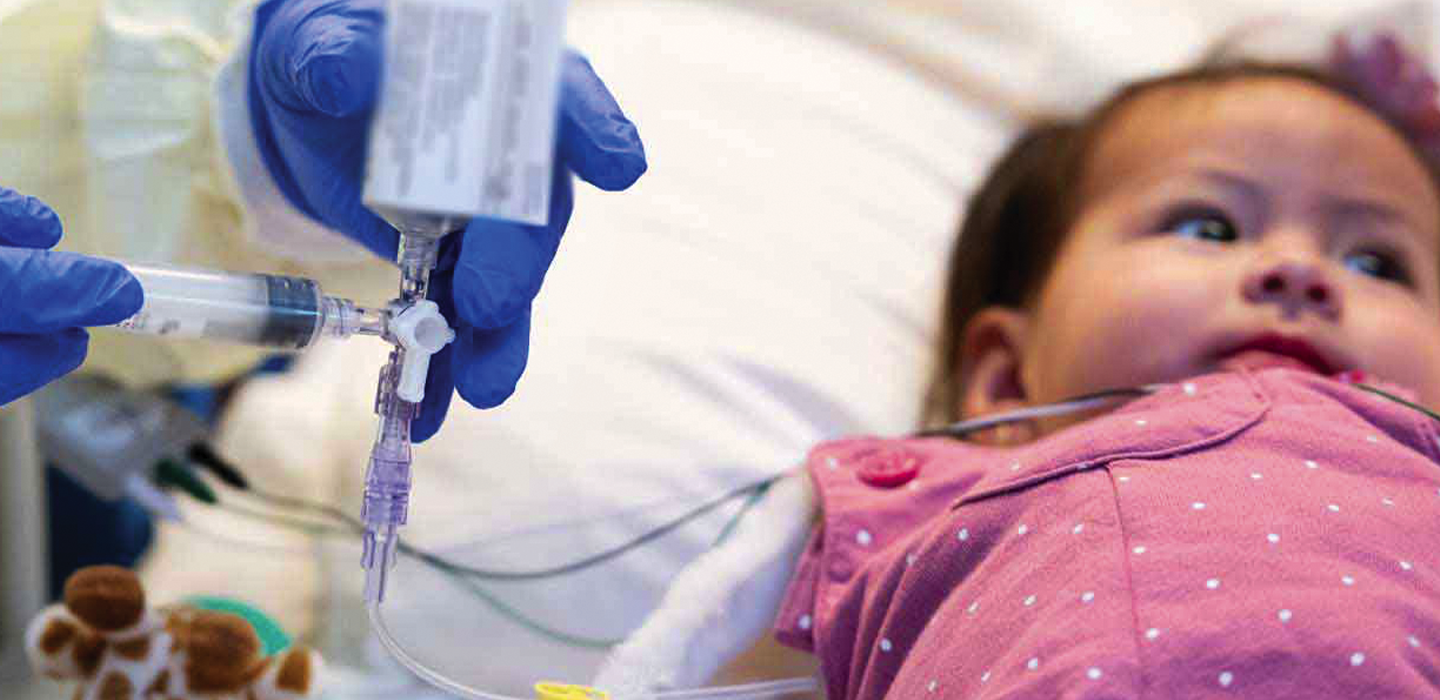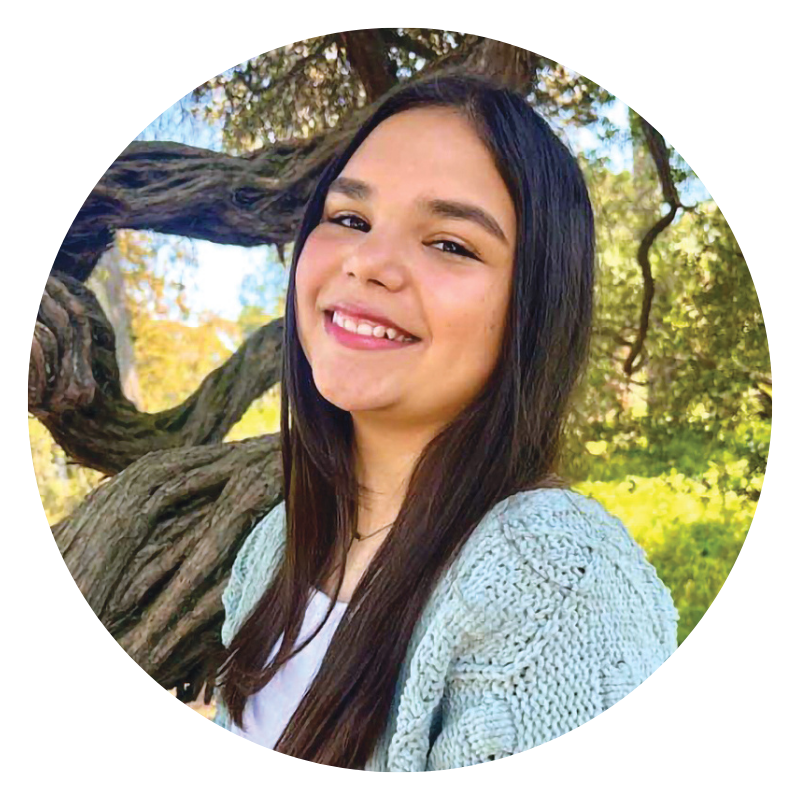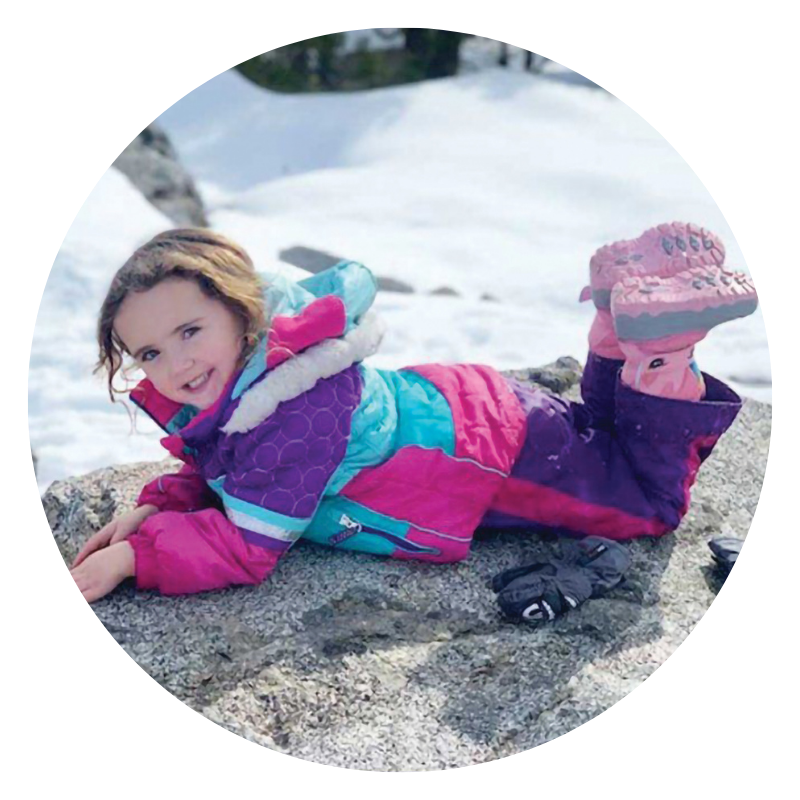Transforming Pediatrics
How UCSF Research Is Changing Lives

In 2024, research funded by the National Institutes of Health and private philanthropy drove groundbreaking care for kids with strokes, heart defects, and immune system disorders. Here, we share just a few of the countless stories of children whose lives have been transformed thanks to investments in discovery and innovation. As UCSF navigates a rapidly evolving health care landscape, we are partnering with our donor community to continue advancing children’s health — today and for generations to come.
Gabby: Stroke Survivor Marches Forward
 At UCSF Benioff Children’s Hospitals, each research paper, clinical trial, andlifesaving treatment starts with a question: How can we offer hope for the future of every child?
At UCSF Benioff Children’s Hospitals, each research paper, clinical trial, andlifesaving treatment starts with a question: How can we offer hope for the future of every child?
That includes children like Gabby Lopes, who suffered a stroke at age 12 due to a rare brain disease. Gabby was rushed to UCSF Benioff Children’s Hospital Oakland, where she received a novel treatment that later became the basis of the first clinical trial in the nation for acute stroke in children. Led by UCSF pediatric neurologist Heather Fullerton, MD, and spanning 25 centers across North America, the trial is bringing transformative therapy to children who might otherwise have faced lifelong disabilities, at best. Today, Gabby is back at school and playing in the band.
HT: Gene Therapy Pioneer is Back to Playtime
Only days after Hataalii Tiisyatonii “HT” Begay was born in Arizona, he was airlifted to his local hospital and diagnosed with Artemis-SCID. Children with this condition have no immune system, and without treatment, they usually die before their third birthday. But UCSF researchers are leading a clinical trial that enabled HT to become the world’s first Artemis-SCID patient to receive gene-correction therapy with his own cells — eliminating complications associated with receiving donor cells. After successful treatment, HT is back to enjoying a normal childhood.
UCSF pediatric researcher Christopher Dvorak, MD, co-leads the Primary Immune Deficiency Treatment Consortium (PIDTC), which brings together 47 centers nationwide to research and treat rare immune deficiency diseases. Dvorak’s team is developing a platform to share the consortium’s research with centers across the country, ensuring that patients in every state have access to cutting-edge, evidence-based care.
Brooklyn: Heart Hero Finds Holistic Healing
 By the time Brooklyn Bertilacchi reached her first birthday, she’d had four surgeries at UCSF Benioff Children’s Hospitals to correct a congenital heart defect. As Brooklyn grew older, her mother, Katie, started to notice her child struggling to read and write. Katie learned that children with congenital heart disease have an increased risk for neurodevelopmental differences such as attention-deficit/hyperactivity disorder (ADHD) and autism. Brooklyn and her family returned to UCSF, where Brooklyn was seen in the Healthy Hearts and Minds program and diagnosed with ADHD. Thanks to the decades of research into neurologic outcomes in babies with congenital heart disease, Brooklyn was connected to treatment, education, therapy, and parental support that put her back on a forward path.
By the time Brooklyn Bertilacchi reached her first birthday, she’d had four surgeries at UCSF Benioff Children’s Hospitals to correct a congenital heart defect. As Brooklyn grew older, her mother, Katie, started to notice her child struggling to read and write. Katie learned that children with congenital heart disease have an increased risk for neurodevelopmental differences such as attention-deficit/hyperactivity disorder (ADHD) and autism. Brooklyn and her family returned to UCSF, where Brooklyn was seen in the Healthy Hearts and Minds program and diagnosed with ADHD. Thanks to the decades of research into neurologic outcomes in babies with congenital heart disease, Brooklyn was connected to treatment, education, therapy, and parental support that put her back on a forward path.
More than 40,000 babies are born with a heart defect every year. A group led by UCSF pediatric critical care specialist Patrick McQuillen, MD; pediatric cardiologist Shabnam Peyvandi, MD; and biomedical engineer Duan Xu, PhD, pioneered neuroimaging in newborns to detect heart defects and associated brain injuries that can lead to neurodevelopmental delays and intellectual impairments. McQuillen and his team are now exploring ways to treat heart defects and prevent brain injuries before birth, with the goal of eliminating developmental challenges before they begin.
Through the support of countless donors and funders like you, Gabby, HT, and Brooklyn are among the thousands of kids whose lives have been changed by research funded through philanthropy. Together, we can continue to tackle the most pressing questions in children’s health and elevate pediatrics to new heights. For more information on how you can support pediatric research at UCSF, contact Jasmine Payne at [email protected].